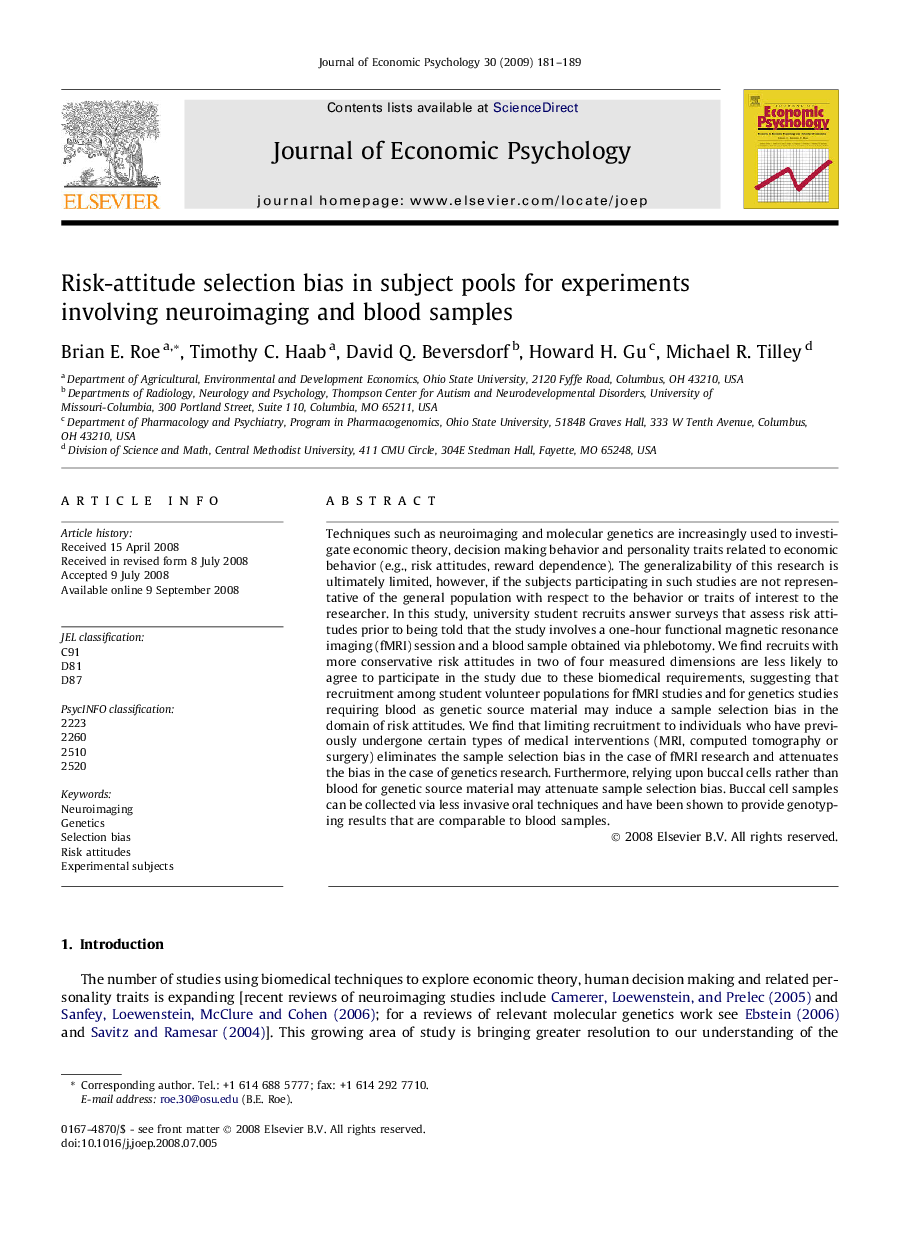| Article ID | Journal | Published Year | Pages | File Type |
|---|---|---|---|---|
| 885435 | Journal of Economic Psychology | 2009 | 9 Pages |
Techniques such as neuroimaging and molecular genetics are increasingly used to investigate economic theory, decision making behavior and personality traits related to economic behavior (e.g., risk attitudes, reward dependence). The generalizability of this research is ultimately limited, however, if the subjects participating in such studies are not representative of the general population with respect to the behavior or traits of interest to the researcher. In this study, university student recruits answer surveys that assess risk attitudes prior to being told that the study involves a one-hour functional magnetic resonance imaging (fMRI) session and a blood sample obtained via phlebotomy. We find recruits with more conservative risk attitudes in two of four measured dimensions are less likely to agree to participate in the study due to these biomedical requirements, suggesting that recruitment among student volunteer populations for fMRI studies and for genetics studies requiring blood as genetic source material may induce a sample selection bias in the domain of risk attitudes. We find that limiting recruitment to individuals who have previously undergone certain types of medical interventions (MRI, computed tomography or surgery) eliminates the sample selection bias in the case of fMRI research and attenuates the bias in the case of genetics research. Furthermore, relying upon buccal cells rather than blood for genetic source material may attenuate sample selection bias. Buccal cell samples can be collected via less invasive oral techniques and have been shown to provide genotyping results that are comparable to blood samples.
